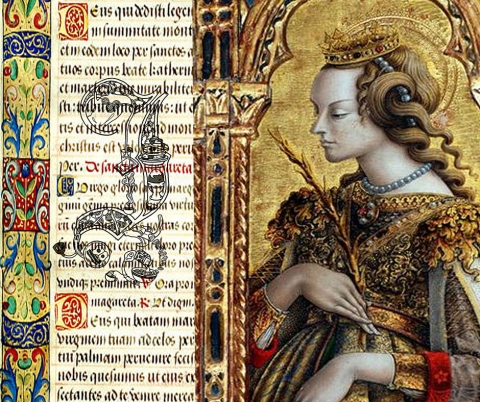Ethical Consumption Before Capitalism (2021-2022)
Is there a right type and amount of consumption? The idea of ethical consumption has gained prominence in recent discourse, both in terms of what we purchase (from fair trade coffee to carbon offsets) and how much we consume (from rechargeable batteries to energy efficient homes). Yet, concern with the morality of consumption is not new to capitalist societies and is present in the earliest discourses surrounding the market economy.
During the Restoration, England became a dominant economic and military power despite its religious and political crises. One of the main agents of England's significant economic expansion was the English East India Company (EIC). Authors at the end of the 17th century were concerned, however, with the negative impact of foreign trade.
This project team examined the nature of premodern discourses of ethical consumption through tracking the relationship between consumer culture and ethics in language. Using both archival research and computational methods and building on the work of a related 2021 Data+ project team, team members applied computational methods to digitized texts included in the Early English Books Online Text Creation Partnership (EEBO-TCP) to examine how early modern writers responded to shifts in trade and consumption in their efforts to care for the “body politic.”
Learn more about this project team by viewing the team's video.
Timing
Fall 2021 – Spring 2022
Team Outputs
Digital project accepted for Out of the Archives: Digital Projects as Early Modern Research Objects, North Carolina State University, March 2022
Using Computation to Analyze Premodern Attitudes Towards Consumption (2022 Fortin Foundation Bass Connections Virtual Showcase)
Caring for a Corrupt Corpus: Ethical and Legal Standpoints on English Consumption (1660–1714) (poster by Charlotte Lim, Ioana Lungescu, Dan Reznichenko, Heidi Smith, Amy Weng, presented at Northeast Modern Language Association Annual Convention, Baltimore, MD, March 12, 2022, and Fortin Foundation Bass Connections Showcase, Duke University, April 13, 2022)
Mapping Publishing Networks in Early Modern London (video). 2023. Duke Center for Computational Thinking.
This Team in the News
Two Faculty Recognized for Exceptional Co-Leadership of Bass Connections Team
See related Data+ summer projects, Ethical Consumption Before Capitalism (2023), Ethical Consumption Before Capitalism (2021), For Love of Greed: Tracing the Early History of Consumer Culture (2020) and related team, Ethical Consumption Before Capitalism (2023-2024).
Image: Medieval, by June Yarham, licensed under CC BY-NC-ND 2.0

Team Leaders
- Astrid Giugni, Arts & Sciences-English
- Jessica Hines, Birmingham-Southern College
/graduate Team Members
-
Meghan Woolley, History-PHD
/undergraduate Team Members
-
Theodora Harmsworth, Public Policy Studies (AB)
-
Charlotte Lim, Public Policy Studies (AB)
-
Ioana Lungescu, Economics (BS)
-
Danila Reznichenko, Economics (BS)
-
Heidi Smith, Computer Science (BS)
-
Amy Weng, Computer Science (BS)
/yfaculty/staff Team Members
-
Katherine Collins, Duke Libraries
-
Lee Sorensen, Duke Libraries
/zcommunity Team Members
-
G.K. Armstrong, Birmingham-Southern College Library
-
Madison Blair, Undergraduate Student, Birmingham-Southern College
-
Leo Proctor, Undergraduate Student, Birmingham-Southern College
-
Andrew Scofield, Undergraduate Student, Birmingham-Southern College
-
Victoria Terry, Undergraduate Student, Birmingham-Southern College
